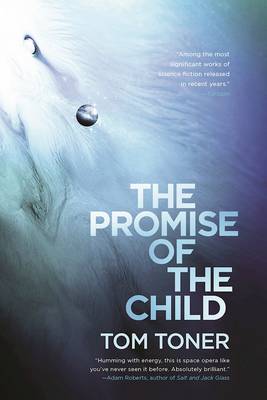Reviewed by nannah on
For someone's first book, this is incredibly ambitious. Unfortunately, a lot becomes muddled and lost in that ambition.
Book content warnings:
rape
sexual assault
sexism & misogyny
homophobia
ableism & ableist language
This epic space opera is told in several PoVs, some less or more important to the overall story (and given more or less scene time, though that's not directly related to their importance).
But first, some background info: it's the 147th century. Now take a look at that again. Whew! That's pretty far future, even for sci-fi (ambitious, like I said!). When humanity eventually took to space, they found the one thing they never expected to find: nothing. Eventually, humanity prismed into several different fairy-tale like races inhabiting different planets on different solar systems, but those on top are clearly the Amaranthine, those closest to us original humans. Basically, they're humans gone immortal. The most powerful of them are the oldest (the oldest that haven't gone "insane", that is), gaining powers as they age in place of body hungers and functions.
One of our main characters is one of these ancient Amaranthine, a man named Sotiris who mourns the loss of his sister. He eventually meets our next main character and ends up changing his life in a major way (for the better or worse).
Lycaste is a Melius, a giant-like race with a famously handsome face from a small, rural cove on the Old World (Earth, as we know it). He lives in the Tenth Province of the Old World, a province of general unimportance as things are--the First and Second are where things really happen, although out in the Tenth . . . it doesn't really feel like it? There's really no mention of law or anything coming from the First or Second provinces until someone from those provinces actually comes into town--and even then, it's not really clear how those provinces impact the Tenth until the last 1/4th of the book. Lycaste is a pretty shy recluse with love troubles (or something . . . ), who really comes into his own as the book progresses.
Corphuso is a gnome-like inventor of a ground-breaking machine known as the Shell. It's a machine shrouded in mystery, so I won't give anything away, but it's something many people of many races covet, including
Aaron the Longlife, another Amaranthine (or is he, really?) who seeks to claim the Amaranthine throne.
As awesome and shiny and creative as the story sounds, it ultimately doesn't live up to expectations because of its sexism, misogyny, homophobia, and as hypocritical as it seems, its lack of creativity.
Sometimes stories set this far in the future develop its culture by taking a huge step in reverse. That is, much of our protagonists' ways of life seem even to our lives right now, outdated--even if there are mentions of super-advanced tech from time to time. I mean, there aren't really any advanced means of communication or transportation between the common people of most races, weapons seem pretty archaic, family structure remains frustratingly similar as it is today (man + wife + children, with the husband the most important head of the family), and political structures that clearly have only men in power.
In fact, save for three women (who serve only as love interests), every main and secondary character is a man. And there are a lot of characters, which only proves how little women matter in this universe's future. They're even derogatorily nicknamed "butterflies" by men, and the more I read the more I became bitter. Why read a story that obviously isn't made for me to enjoy?
Delving further into this, Lycaste is a character that's most often the PoV protagonist. He's obviously someone the reader's should sympathize with, but he's so distasteful that I could never like him. He spends the first half of the book pining after a girl who's obviously not into him that way, and I thought he'd eventually get it, but instead he kept thinking, "she'll understand someday that we're meant for each other." Which is, of course, not okay. He even goes so far as to feel betrayed and angry when she falls for someone else, as if they were something, which they weren't . . . This kind of "nice guy" mindset is really dangerous for women, and the fact that it was never corrected in the book makes me incredibly uncomfortable.
Speaking of uncomfortable, the homophobia in this book is confusing, to say the least, because it serves absolutely no purpose. There's even a man who sexually assaults Lycaste, because why not have the predatory gay trope in a book that already has homophobia, right?
Sure, the concept of humanity becoming all these different races, the concept of the Amaranthine, the Shell, etc., were all very cool, but outside of those ideas, things were far too close-minded and familiar for me to ever feel entranced or intrigued. Cool creatures; but why are there still two genders? Cool powers, but why are only men still in power?? Cool ships, but why are these people/people-ish races still mostly white?
Most importantly, though, the story didn't grab me because the stakes didn't feel personal enough. Stories grow from the main characters wanting and needing something, but these characters were more or less pushed around by outside forces, and weren't proactive at all. Over 500 pages of being led by events rather than having a purpose or drive or wish. In that sense, the conflict felt wandering and less immediate. My heart just wasn't in it.
Reading updates
- Started reading
- 30 March, 2017: Finished reading
- 30 March, 2017: Reviewed
